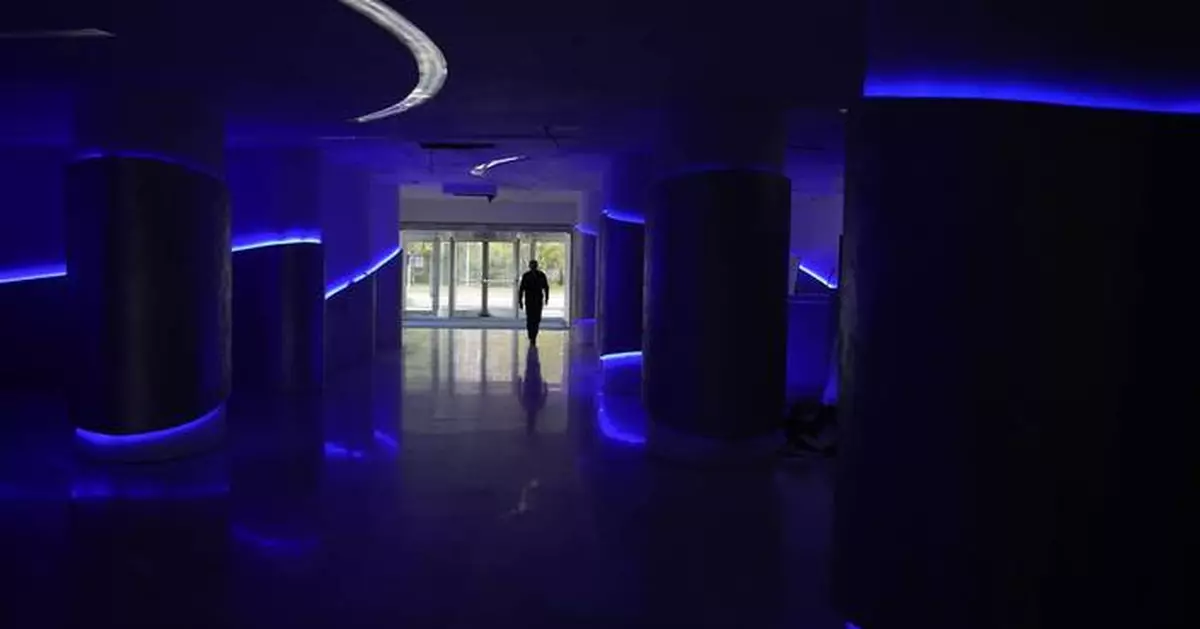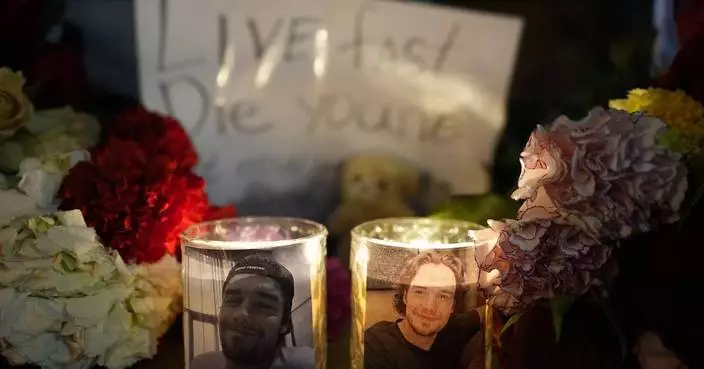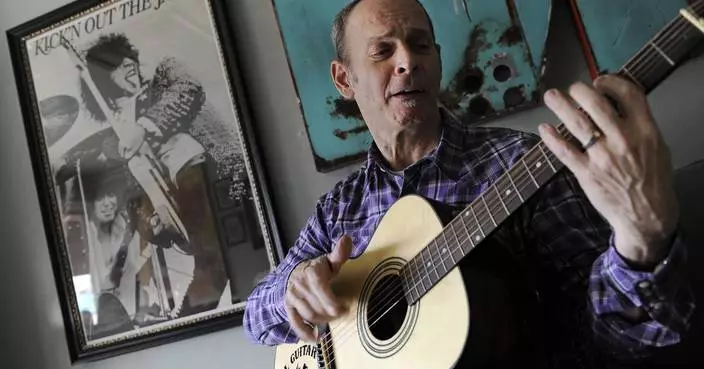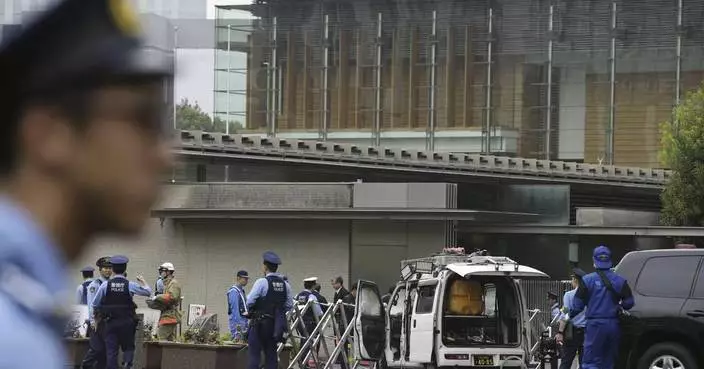BELGRADE, Serbia (AP) — Belgrade’s iconic Hotel Yugoslavia, once a symbol of progress in the former socialist state of Yugoslavia that broke apart in the 1990s and a favorite gathering place for local residents as well as world leaders, now stands in eerie silence awaiting its likely demolition.
The once-bustling landmark — a leading example of modernist architecture when it was built in the 1960s — has fallen into disrepair, its future clouded by debates over its historical significance and the push for advanced development.
Click to Gallery
A woman walks past Hotel Yugoslavia, once a symbol of progress in the former socialist state of Yugoslavia that broke apart in the 1990s and a favorite gathering place for local residents as well as world leaders, in Belgrade, Serbia, Thursday, Oct. 3, 2024. (AP Photo/Darko Vojinovic)
A general view of Belgrade is partially seen through the broken window from Hotel Yugoslavia, once a symbol of progress in the former socialist state of Yugoslavia that broke apart in the 1990s and a favorite gathering place for local residents as well as world leaders, in Belgrade, Serbia, Thursday, Oct. 3, 2024. (AP Photo/Darko Vojinovic)
A pigeon flies in the presidential suite at Hotel Yugoslavia, once a symbol of progress in the former socialist state of Yugoslavia that broke apart in the 1990s and a favorite gathering place for local residents as well as world leaders, in Belgrade, Serbia, Thursday, Oct. 3, 2024. (AP Photo/Darko Vojinovic)
A view of the presidential suite showing graffiti at Hotel Yugoslavia, once a symbol of progress in the former socialist state of Yugoslavia that broke apart in the 1990s and a favorite gathering place for local residents as well as world leaders, in Belgrade, Serbia, Thursday, Oct. 3, 2024. (AP Photo/Darko Vojinovic)
A view shows one of the halls at Hotel Yugoslavia, once a symbol of progress in the former socialist state of Yugoslavia that broke apart in the 1990s and a favorite gathering place for local residents as well as world leaders, in Belgrade, Serbia, Thursday, Oct. 3, 2024. (AP Photo/Darko Vojinovic)
A security worker walks through Hotel Yugoslavia, once a symbol of progress in the former socialist state of Yugoslavia that broke apart in the 1990s and a favorite gathering place for local residents as well as world leaders, in Belgrade, Serbia, Thursday, Oct. 3, 2024. (AP Photo/Darko Vojinovic)
A security worker walks through Hotel Yugoslavia, once a symbol of progress in the former socialist state of Yugoslavia that broke apart in the 1990s and a favorite gathering place for local residents as well as world leaders, in Belgrade, Serbia, Thursday, Oct. 3, 2024. (AP Photo/Darko Vojinovic)
A view shows one of the restaurants at Hotel Yugoslavia, once a symbol of progress in the former socialist state of Yugoslavia that broke apart in the 1990s and a favorite gathering place for local residents as well as world leaders, in Belgrade, Serbia, Thursday, Oct. 3, 2024. (AP Photo/Darko Vojinovic)
A view of a room at Hotel Yugoslavia, once a symbol of progress in the former socialist state of Yugoslavia that broke apart in the 1990s and a favorite gathering place for local residents as well as world leaders, in Belgrade, Serbia, Thursday, Oct. 3, 2024. (AP Photo/Darko Vojinovic)
A cat rests in the corridor of Hotel Yugoslavia, once a symbol of progress in the former socialist state of Yugoslavia that broke apart in the 1990s and a favorite gathering place for local residents as well as world leaders, in Belgrade, Serbia, Thursday, Oct. 3, 2024. (AP Photo/Darko Vojinovic)
A view of a room at Hotel Yugoslavia, once a symbol of progress in the former socialist state of Yugoslavia that broke apart in the 1990s and a favorite gathering place for local residents as well as world leaders, in Belgrade, Serbia, Thursday, Oct. 3, 2024. (AP Photo/Darko Vojinovic)
A view of a corridor at Hotel Yugoslavia, once a symbol of progress in the former socialist state of Yugoslavia that broke apart in the 1990s and a favorite gathering place for local residents as well as world leaders, in Belgrade, Serbia, Thursday, Oct. 3, 2024. (AP Photo/Darko Vojinovic)
A view of Hotel Yugoslavia, once a symbol of progress in the former socialist state of Yugoslavia that broke apart in the 1990s and a favorite gathering place for local residents as well as world leaders, in Belgrade, Serbia, Thursday, Oct. 3, 2024. (AP Photo/Darko Vojinovic)
A view of Hotel Yugoslavia, once a symbol of progress in the former socialist state of Yugoslavia that broke apart in the 1990s and a favorite gathering place for local residents as well as world leaders, in Belgrade, Serbia, Thursday, Oct. 3, 2024. (AP Photo/Darko Vojinovic)
A security worker walks through Hotel Yugoslavia, once a symbol of progress in the former socialist state of Yugoslavia that broke apart in the 1990s and a favorite gathering place for local residents as well as world leaders, in Belgrade, Serbia, Thursday, Oct. 3, 2024. (AP Photo/Darko Vojinovic)
Its white facade, once polished and welcoming, is marred by crumbling concrete and graffiti. Inside, debris litters once-pristine red carpeted floors, while scattered pieces of broken furniture hint at the opulence that once filled its rooms and lobbies: Faded velvet armchairs, torn bed mattresses, sagging curtains and broken windows are all that remain of the luxury that once was. The wood-paneled presidential suite where top dignitaries would stay is now home to pigeons that fly in through the shattered glass.
As the Serbian capital grapples with hectic growth and new high-rises that dot its skyline, the almost certain fate of the hotel has sparked controversy, with some seeing it as a relic worth preserving and others envisioning new possibilities rising from its ruins.
In its heyday after it received its first guests in 1969, it was a five-star hotel boasting one of the biggest chandeliers in the world made of 40,000 Swarovski crystals and 5,000 bulbs.
Its guest list included Queen Elizabeth II, United States Presidents Richard Nixon and Jimmy Carter, astronauts including Neil Armstrong, and Belgian and Dutch royals.
The hotel, with a spectacular view of the Danube River in the capital's New Belgrade district, was damaged in NATO bombing in 1999 in an armed intervention over Serbia’s bloody crackdown on Kosovo Albanian separatists.
Only parts of the hotel were fully renovated, and it kept receiving guests until a few months ago, when private investors announced plans to demolish the structure and build a new one in its place. Two 150-meter (500-foot) -tall towers containing a luxury hotel, offices and private apartments will be built, according to the new owners.
Asked why the landmark hotel needs to be completely destroyed instead of incorporated into the new project, Zivorad Vasic, a spokesperson for the investors, said there were several reasons.
"One is during the bombing in 1999, quite a lot of parts of the hotel were destroyed. Second, the hospitality industry completely and tremendously changed. When you look at hotels now and how they looked before, they were completely different,” he said.
Architect and tourist guide Matija Zlatanovic, who often takes tourists to the hotel to explain its rich history, said the plans for the new hotel are “quite controversial," especially because “there are valid concerns about the size of the buildings that are going to be erected here.”
“It follows the trend of towerization of Belgrade and the erection of enormous high rises all over," he said. “And we yet have to see about the impact that they’re going to have on this neighborhood.”
Neighbors who face living in the future shadows of the planned skyscrapers are not happy. Some are holding weekly protests against the new project, saying they will stop the demolition with their bodies if necessary.
Svetlana Gojun, one of the protesters, said Hotel Yugoslavia “represents a huge part of our history.”
“Half the world came to this hotel, from actors, musicians, politicians, writers,” she said. “Everyone is tied to this hotel. The whole world knows about that hotel. And now we will allow something like that to disappear?”
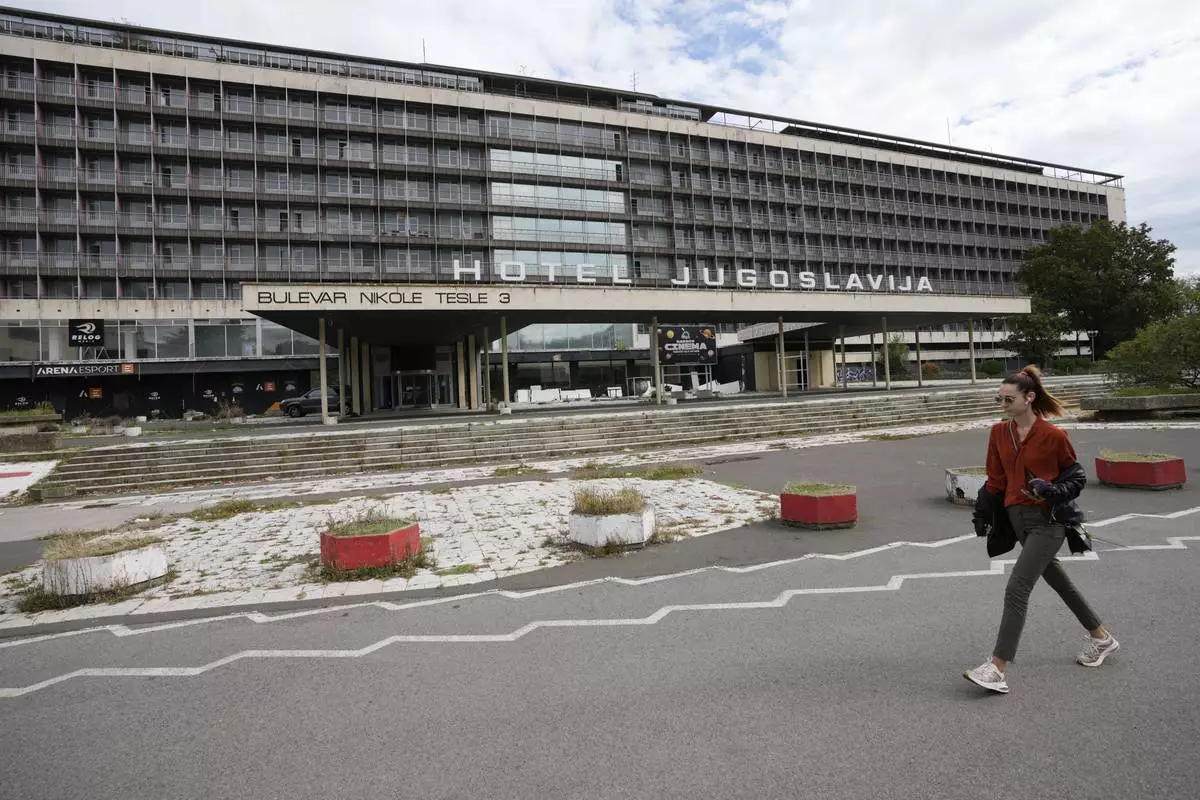
A woman walks past Hotel Yugoslavia, once a symbol of progress in the former socialist state of Yugoslavia that broke apart in the 1990s and a favorite gathering place for local residents as well as world leaders, in Belgrade, Serbia, Thursday, Oct. 3, 2024. (AP Photo/Darko Vojinovic)
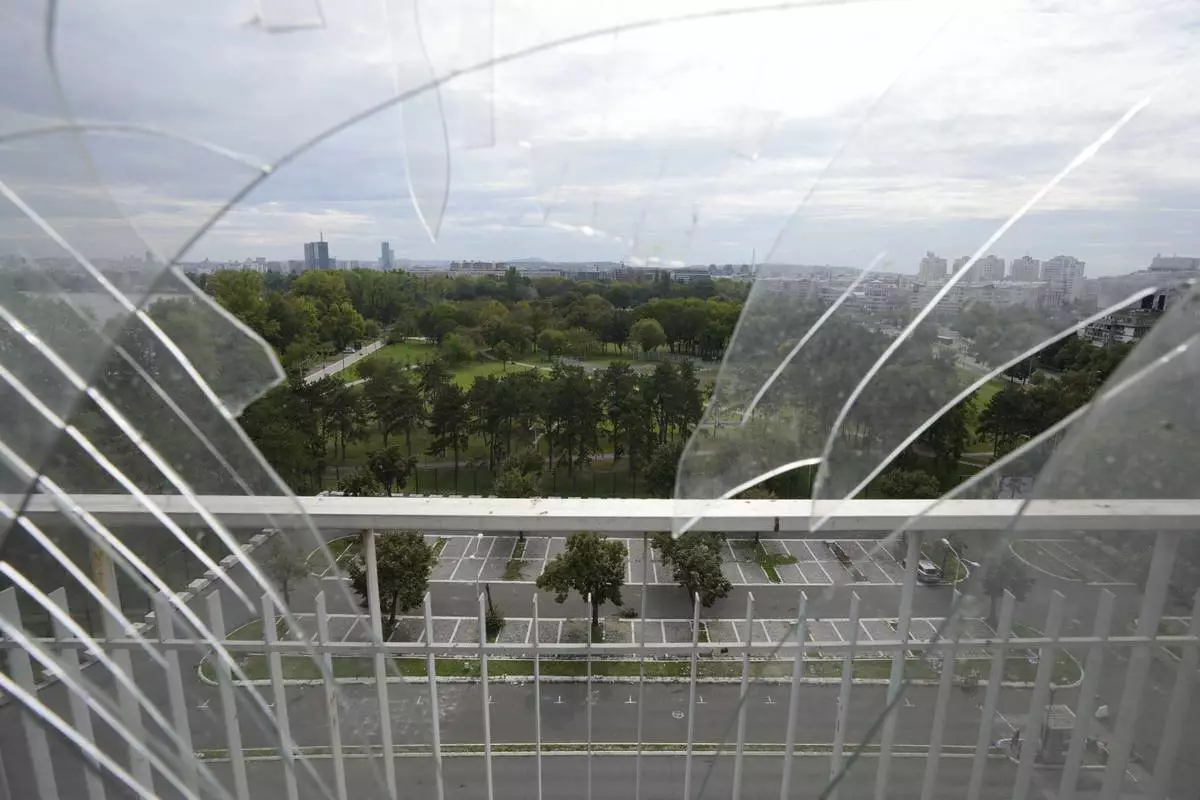
A general view of Belgrade is partially seen through the broken window from Hotel Yugoslavia, once a symbol of progress in the former socialist state of Yugoslavia that broke apart in the 1990s and a favorite gathering place for local residents as well as world leaders, in Belgrade, Serbia, Thursday, Oct. 3, 2024. (AP Photo/Darko Vojinovic)
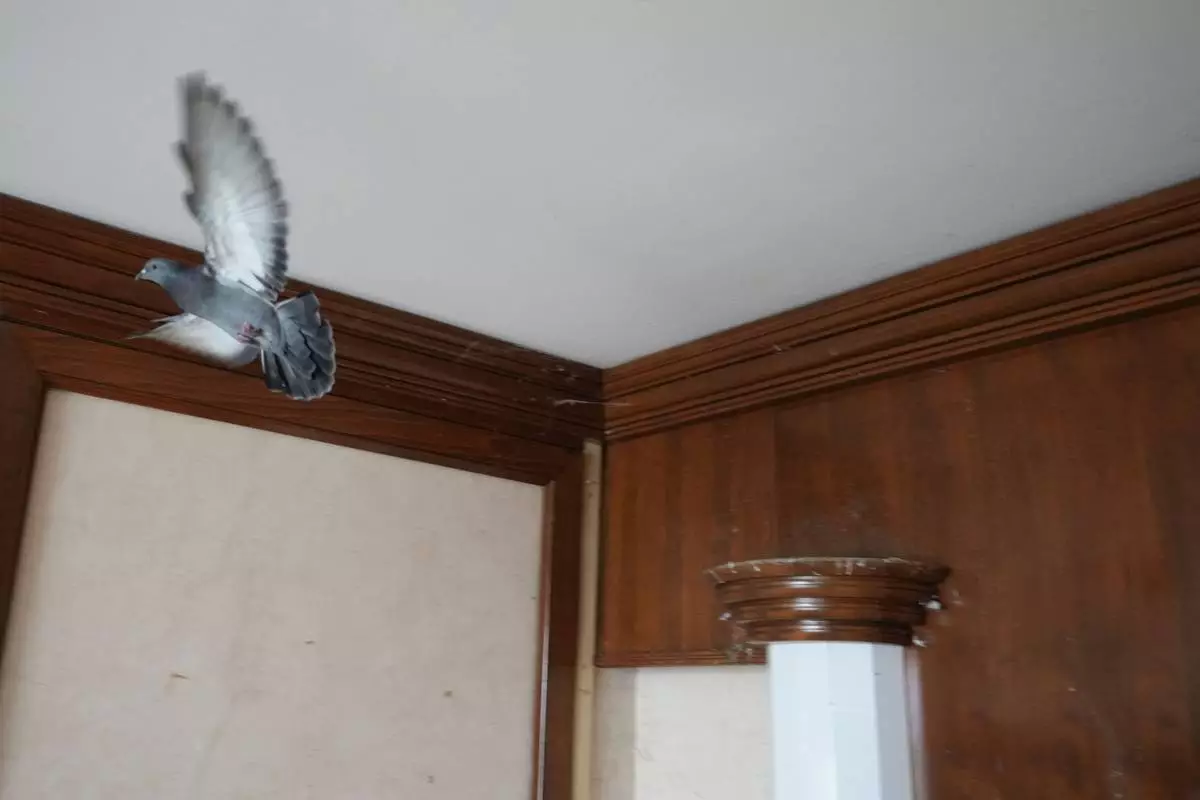
A pigeon flies in the presidential suite at Hotel Yugoslavia, once a symbol of progress in the former socialist state of Yugoslavia that broke apart in the 1990s and a favorite gathering place for local residents as well as world leaders, in Belgrade, Serbia, Thursday, Oct. 3, 2024. (AP Photo/Darko Vojinovic)
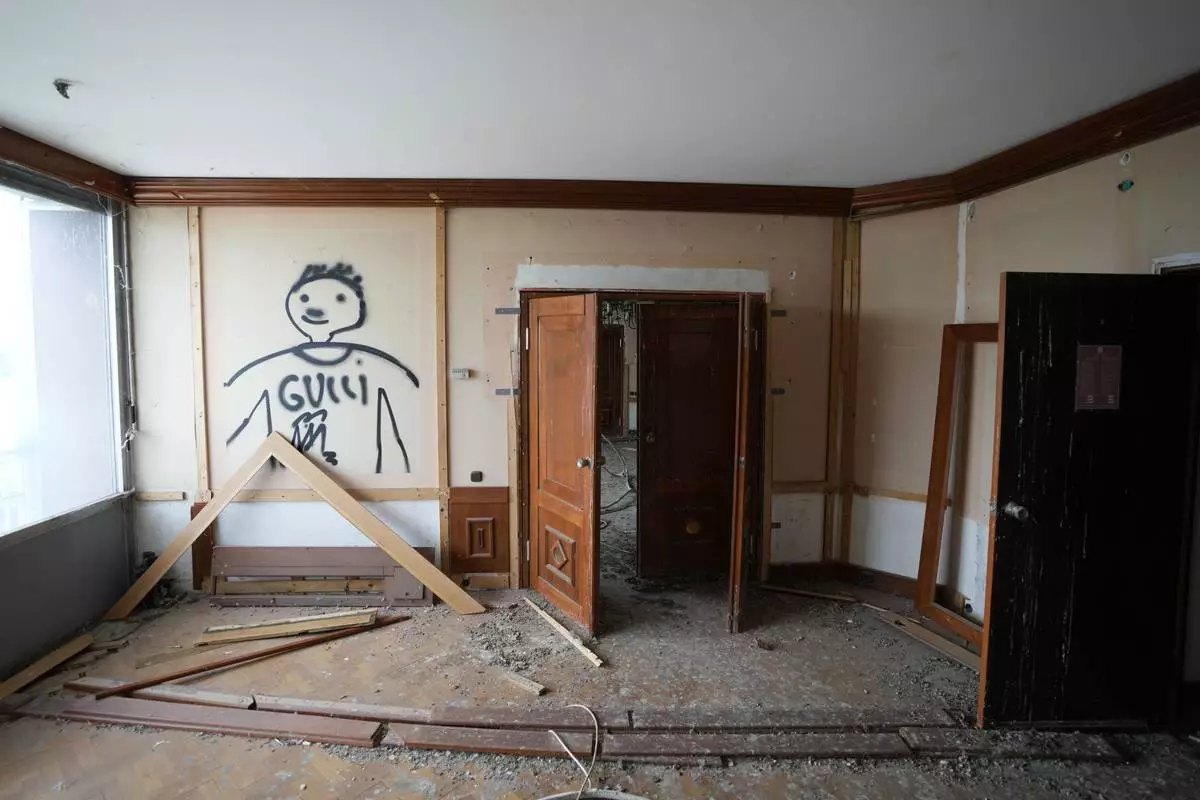
A view of the presidential suite showing graffiti at Hotel Yugoslavia, once a symbol of progress in the former socialist state of Yugoslavia that broke apart in the 1990s and a favorite gathering place for local residents as well as world leaders, in Belgrade, Serbia, Thursday, Oct. 3, 2024. (AP Photo/Darko Vojinovic)
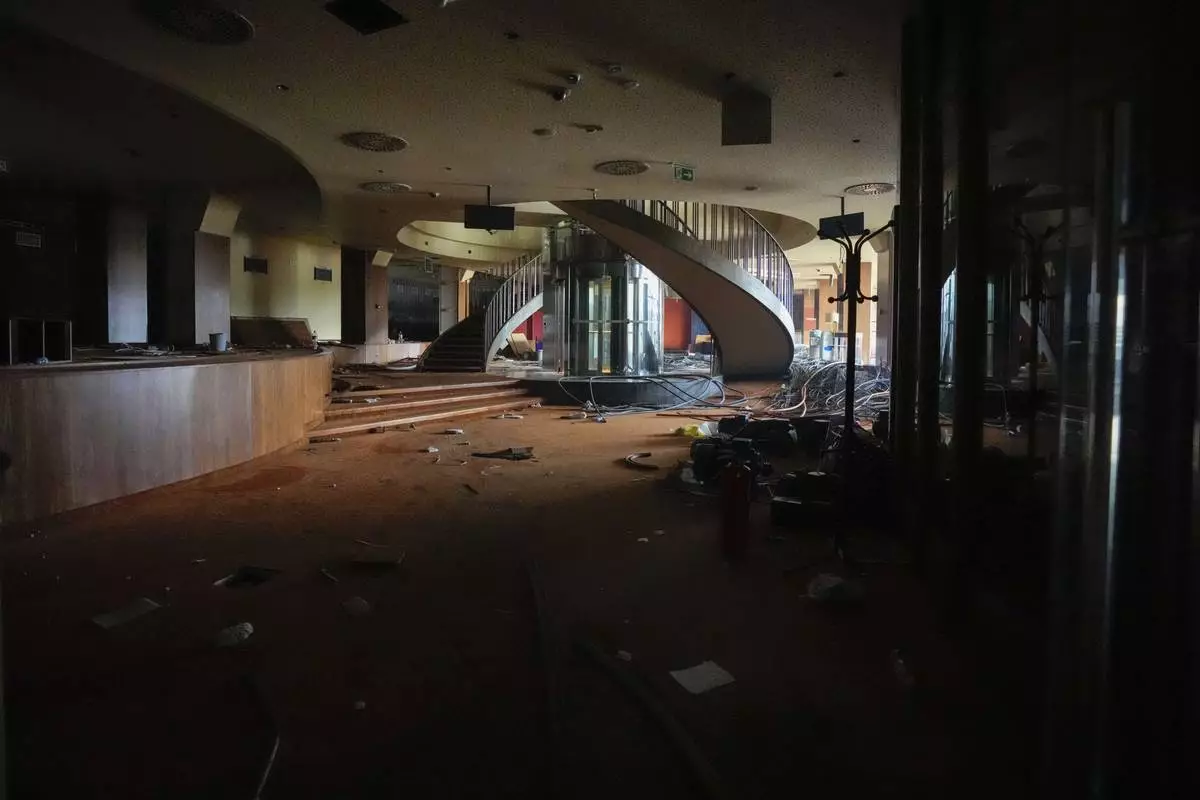
A view shows one of the halls at Hotel Yugoslavia, once a symbol of progress in the former socialist state of Yugoslavia that broke apart in the 1990s and a favorite gathering place for local residents as well as world leaders, in Belgrade, Serbia, Thursday, Oct. 3, 2024. (AP Photo/Darko Vojinovic)
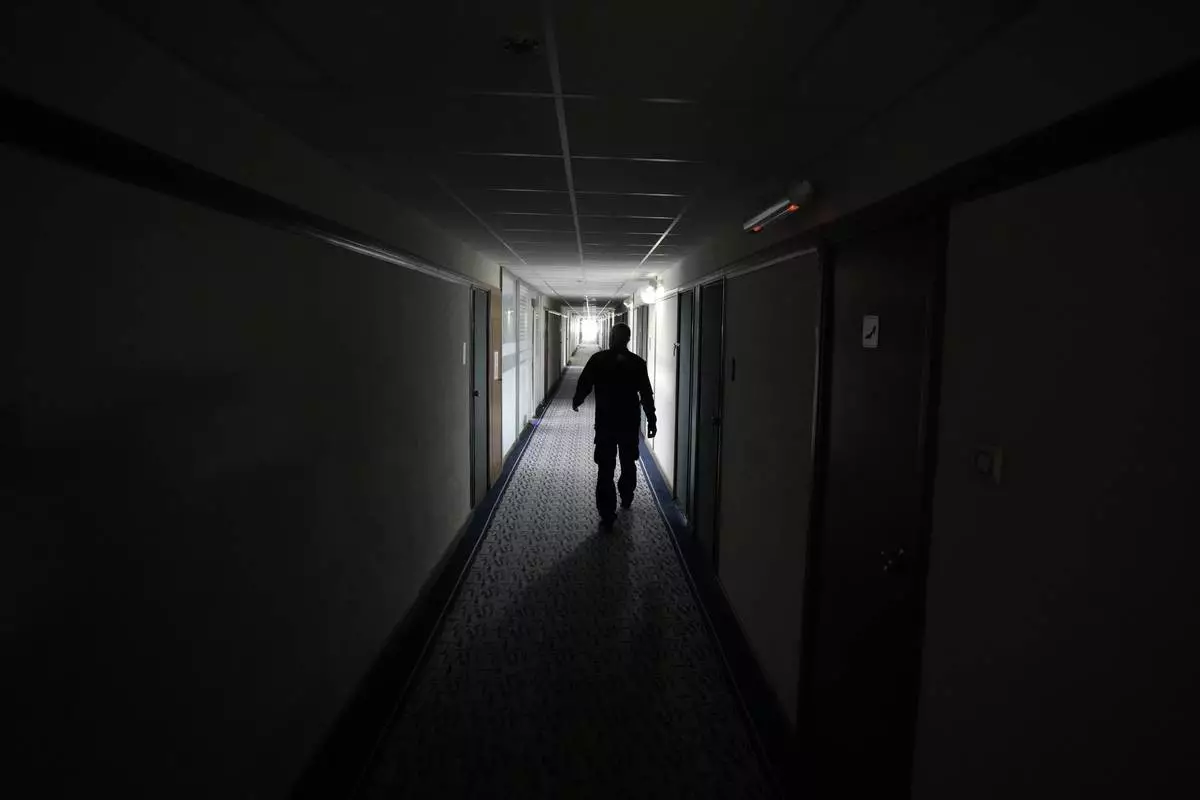
A security worker walks through Hotel Yugoslavia, once a symbol of progress in the former socialist state of Yugoslavia that broke apart in the 1990s and a favorite gathering place for local residents as well as world leaders, in Belgrade, Serbia, Thursday, Oct. 3, 2024. (AP Photo/Darko Vojinovic)
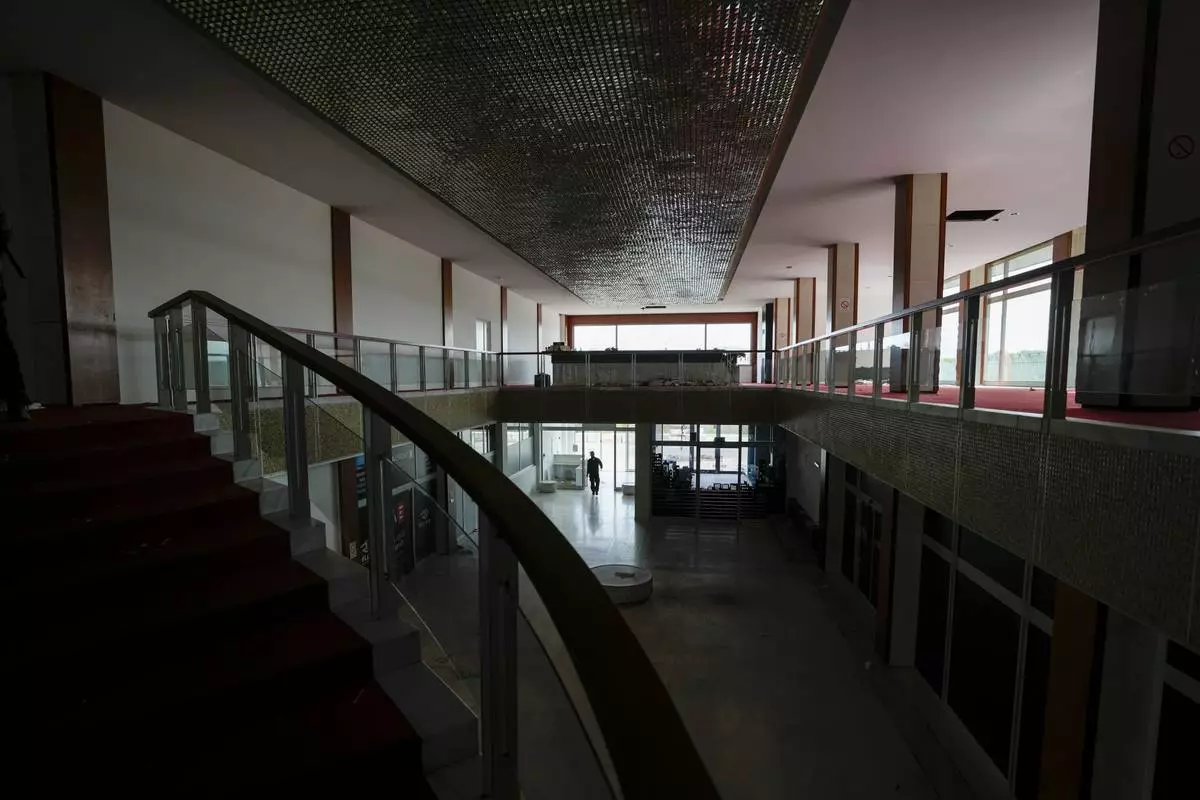
A security worker walks through Hotel Yugoslavia, once a symbol of progress in the former socialist state of Yugoslavia that broke apart in the 1990s and a favorite gathering place for local residents as well as world leaders, in Belgrade, Serbia, Thursday, Oct. 3, 2024. (AP Photo/Darko Vojinovic)
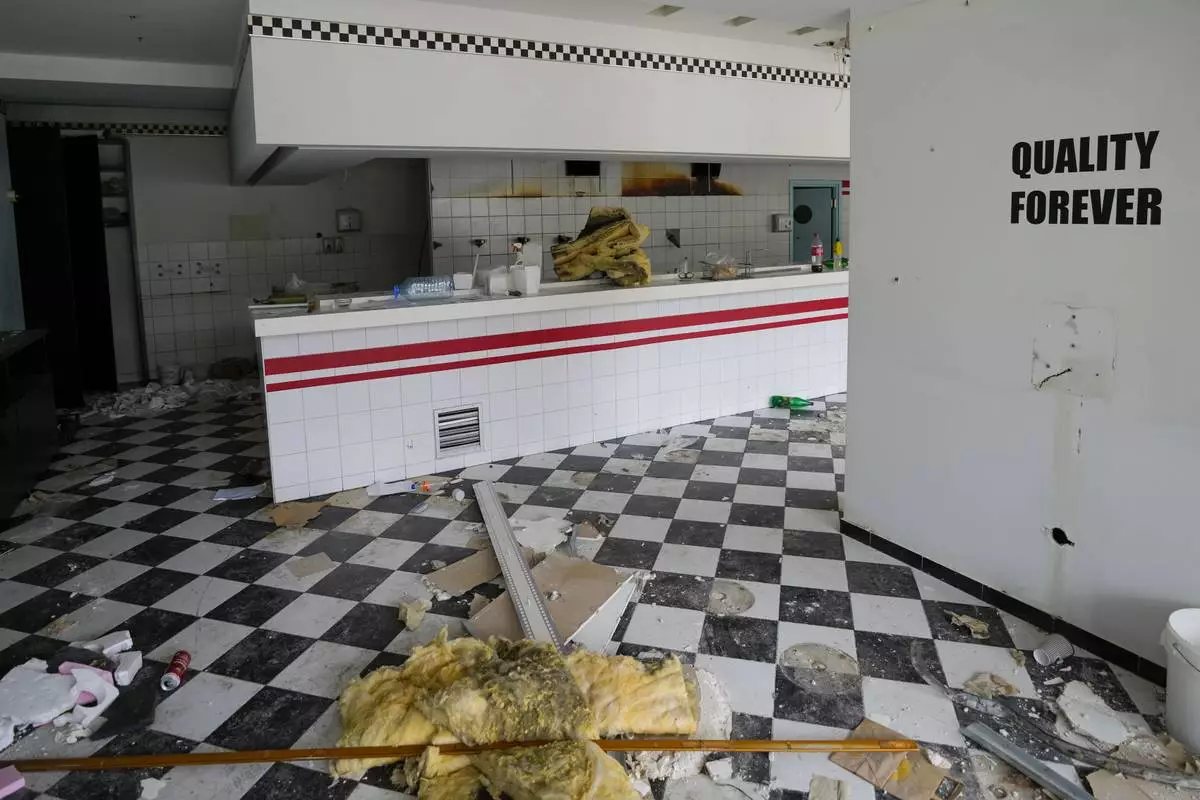
A view shows one of the restaurants at Hotel Yugoslavia, once a symbol of progress in the former socialist state of Yugoslavia that broke apart in the 1990s and a favorite gathering place for local residents as well as world leaders, in Belgrade, Serbia, Thursday, Oct. 3, 2024. (AP Photo/Darko Vojinovic)
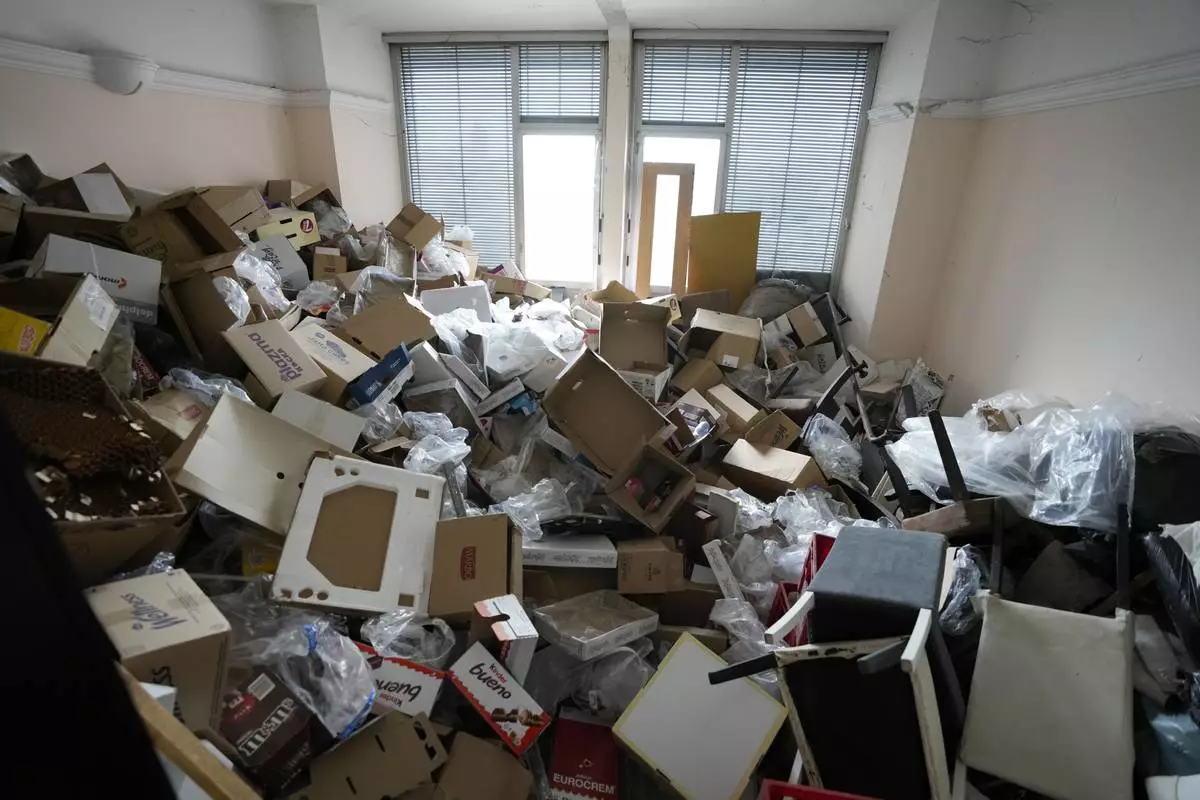
A view of a room at Hotel Yugoslavia, once a symbol of progress in the former socialist state of Yugoslavia that broke apart in the 1990s and a favorite gathering place for local residents as well as world leaders, in Belgrade, Serbia, Thursday, Oct. 3, 2024. (AP Photo/Darko Vojinovic)
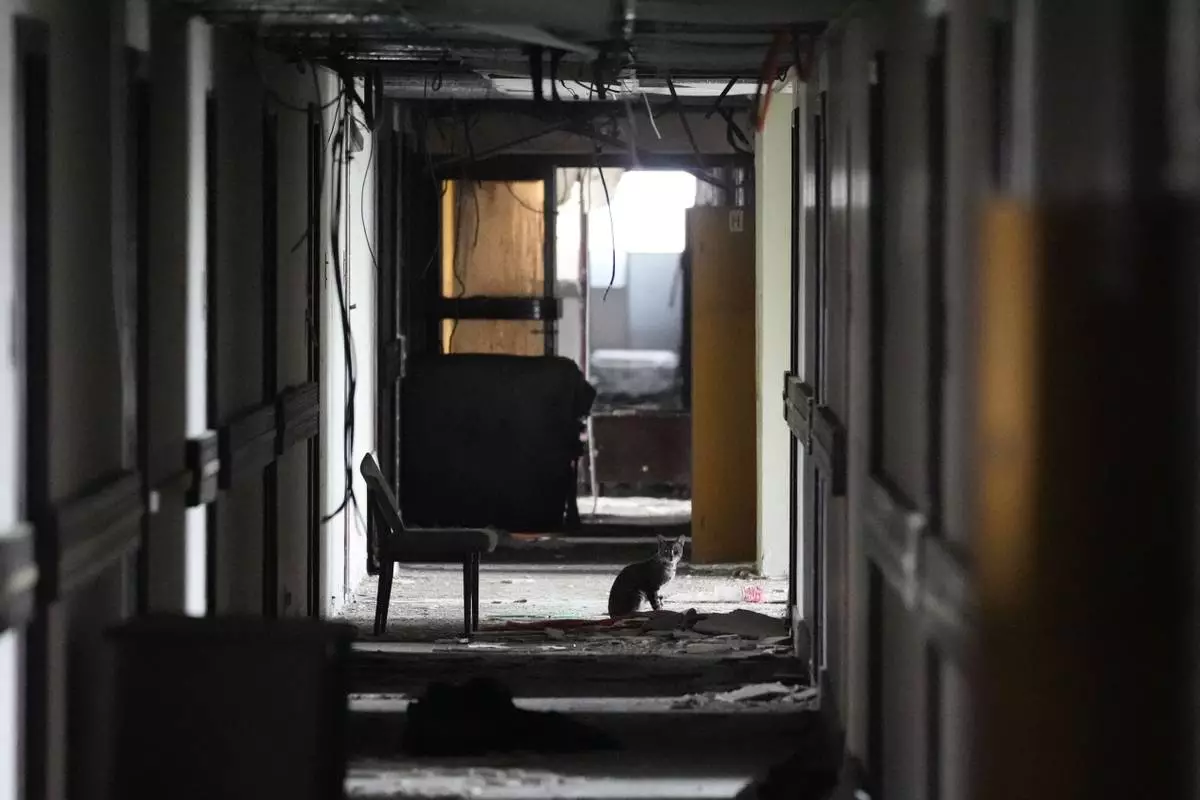
A cat rests in the corridor of Hotel Yugoslavia, once a symbol of progress in the former socialist state of Yugoslavia that broke apart in the 1990s and a favorite gathering place for local residents as well as world leaders, in Belgrade, Serbia, Thursday, Oct. 3, 2024. (AP Photo/Darko Vojinovic)
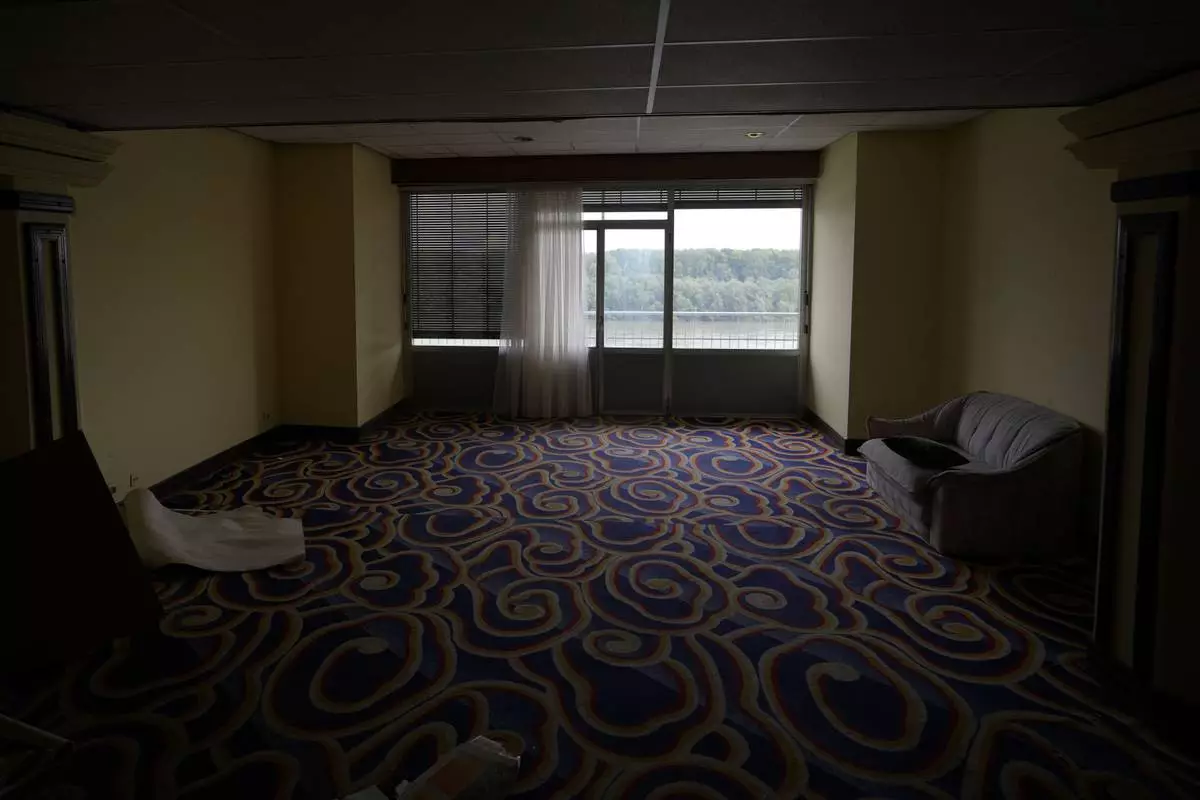
A view of a room at Hotel Yugoslavia, once a symbol of progress in the former socialist state of Yugoslavia that broke apart in the 1990s and a favorite gathering place for local residents as well as world leaders, in Belgrade, Serbia, Thursday, Oct. 3, 2024. (AP Photo/Darko Vojinovic)
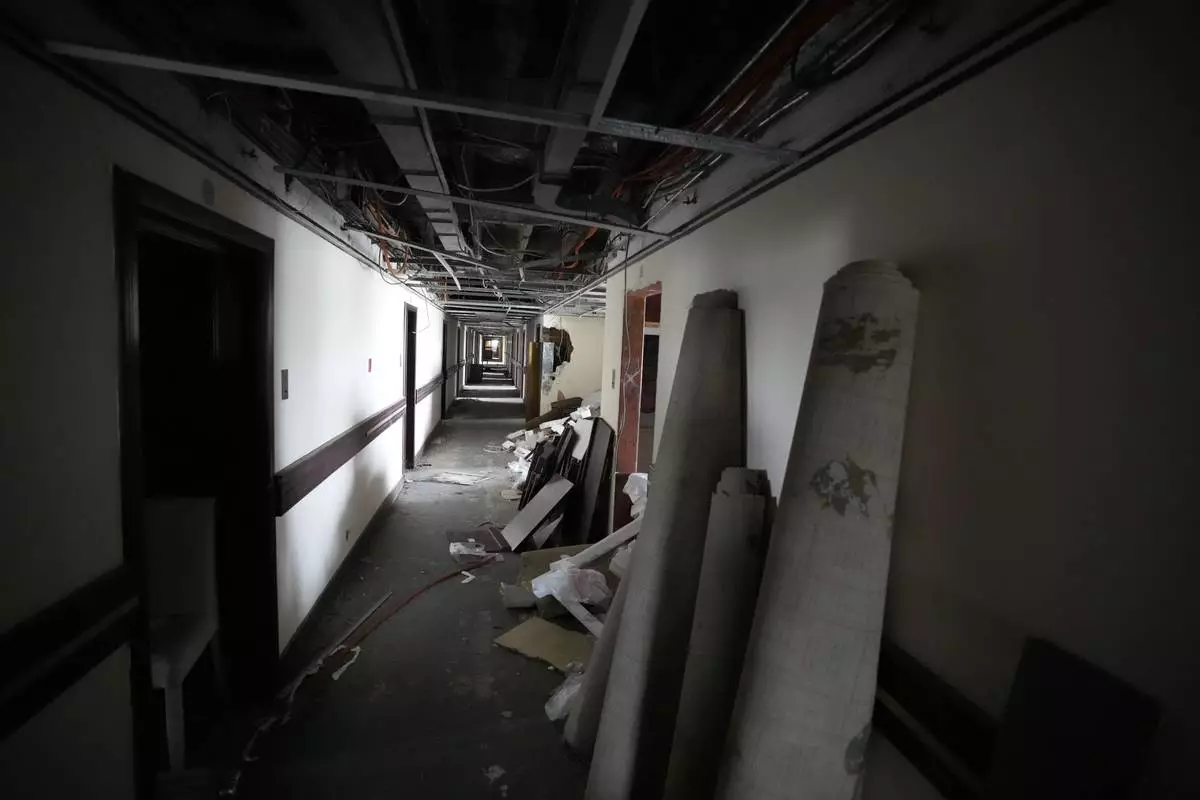
A view of a corridor at Hotel Yugoslavia, once a symbol of progress in the former socialist state of Yugoslavia that broke apart in the 1990s and a favorite gathering place for local residents as well as world leaders, in Belgrade, Serbia, Thursday, Oct. 3, 2024. (AP Photo/Darko Vojinovic)
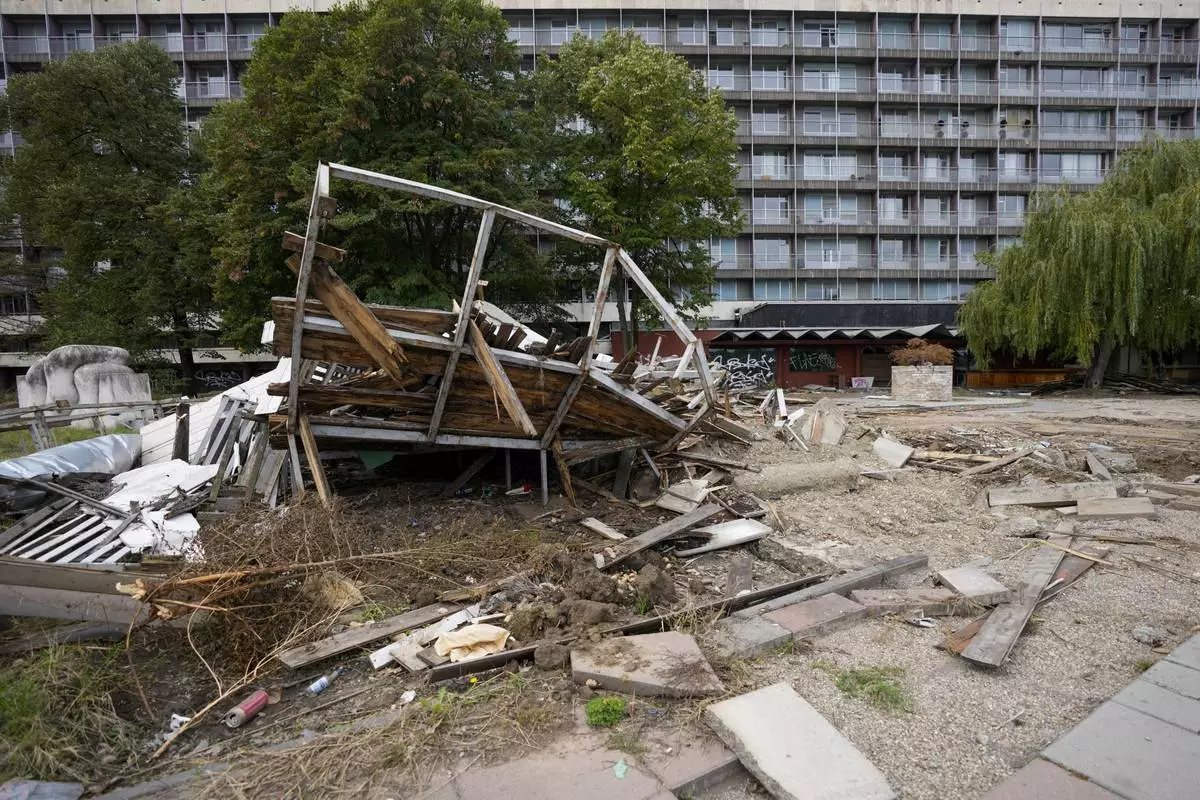
A view of Hotel Yugoslavia, once a symbol of progress in the former socialist state of Yugoslavia that broke apart in the 1990s and a favorite gathering place for local residents as well as world leaders, in Belgrade, Serbia, Thursday, Oct. 3, 2024. (AP Photo/Darko Vojinovic)
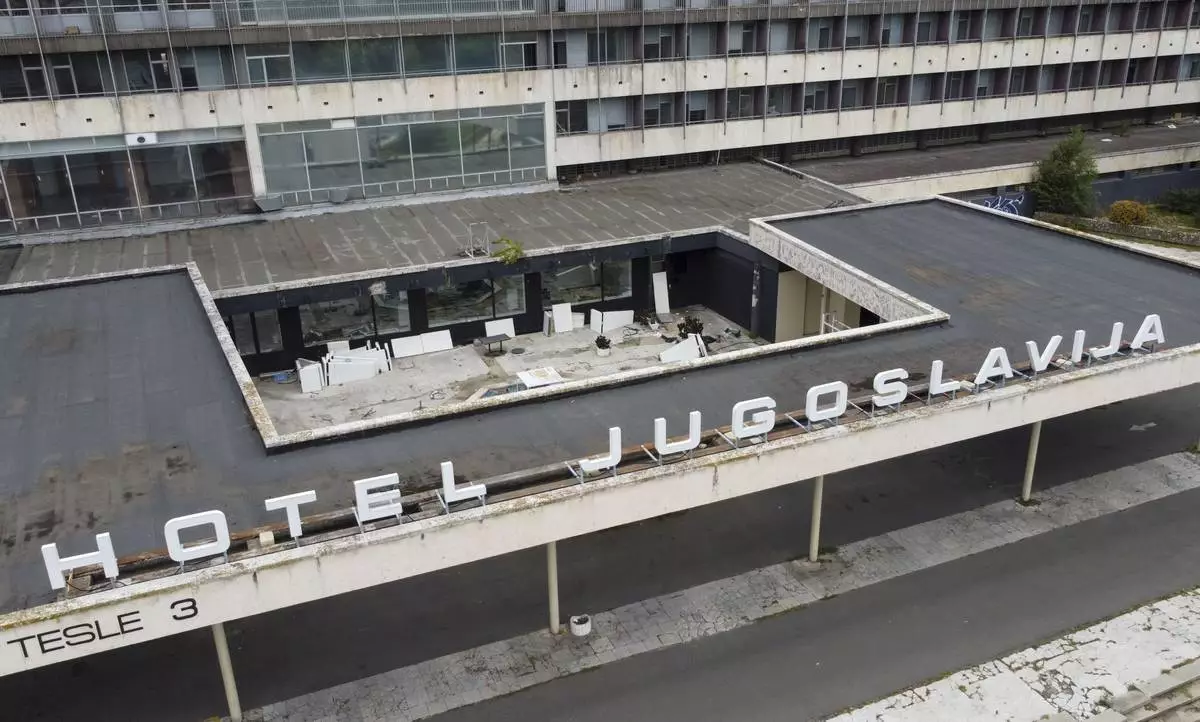
A view of Hotel Yugoslavia, once a symbol of progress in the former socialist state of Yugoslavia that broke apart in the 1990s and a favorite gathering place for local residents as well as world leaders, in Belgrade, Serbia, Thursday, Oct. 3, 2024. (AP Photo/Darko Vojinovic)
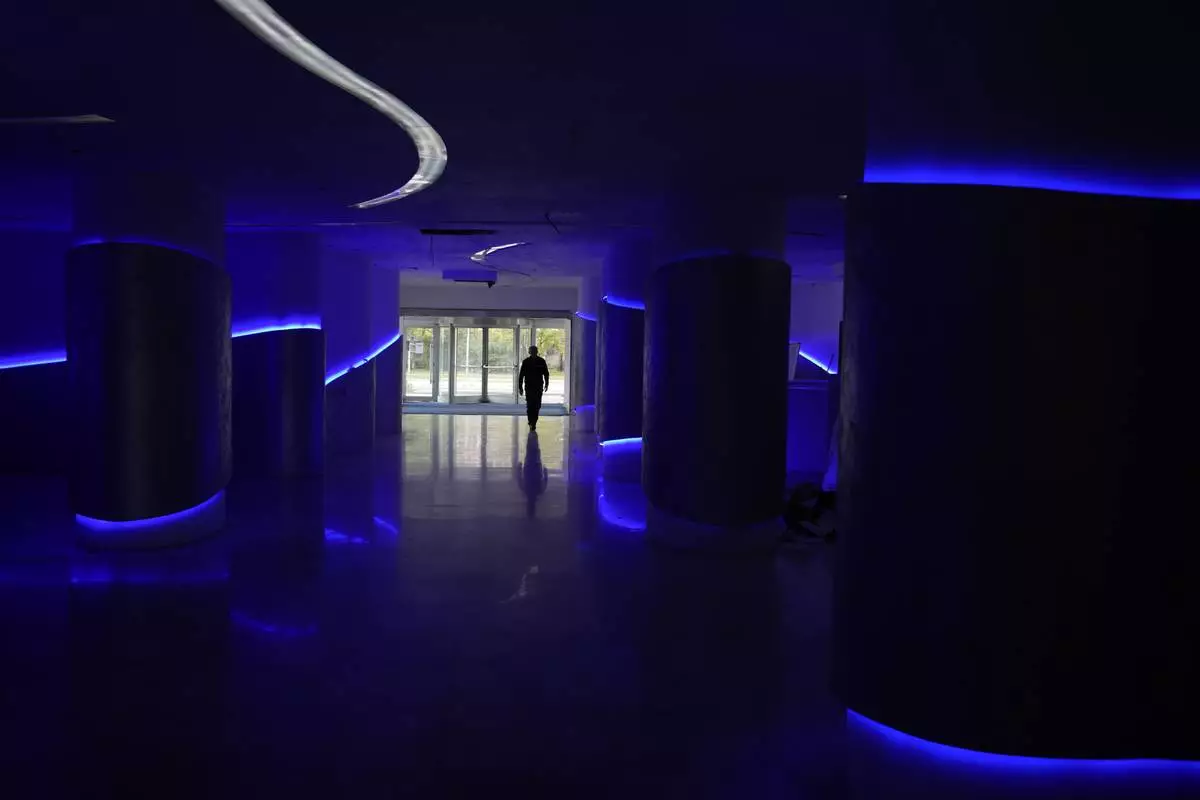
A security worker walks through Hotel Yugoslavia, once a symbol of progress in the former socialist state of Yugoslavia that broke apart in the 1990s and a favorite gathering place for local residents as well as world leaders, in Belgrade, Serbia, Thursday, Oct. 3, 2024. (AP Photo/Darko Vojinovic)
UNITED NATIONS (AP) — Freedom of expression has been threatened more seriously in Gaza than in any recent conflict, with journalists targeted in the war-torn territory and Palestinian supporters targeted in many countries, a United Nations expert said Friday.
Irene Khan, the U.N. independent investigator on the right to freedom of opinion and expression, pointed to attacks on the media and the targeted killings and arbitrary detention of dozens of journalists in Gaza.
“The banning of Al Jazeera, the tightening of censorship within Israel and in the occupied territories, seem to indicate a strategy of the Israeli authorities to silence critical journalism and obstruct the documentation of possible international crimes,” she said.
Khan also sharply criticized the “discrimination and double standards” that have seen restrictions and suppression of pro-Palestinian protests and speech. She cited bans in Germany and other European countries, protests that were “crushed harshly” on U.S. college campuses, and Palestinian national symbols and slogans prohibited and even criminalized in some countries.
The U.N. special rapporteur also pointed to “the silencing and sidelining of dissenting voices in academia and the arts,” with some of the best academic institutions in the world failing to protect all members of their community, “whether Jewish, Palestinian, Israeli, Arab, Muslim, or otherwise.”
While social media platforms have been a lifeline for communications to and from Gaza, Khan said, they have seen an upsurge in disinformation, misinformation and hate speech — with Arabs, Jews, Israelis and Palestinians all targeted online.
She stressed that Israel’s military actions in Gaza and its decades of occupation of Palestinian territories are matters of public interest, scrutiny and criticism.
Khan earlier presented her report on “the global crisis of freedom of expression arising from the conflict in Gaza” to the General Assembly’s human rights committee.
She said Israel responded to it, explained the country’s laws, and “took the position that the conflict in Gaza was not really of global significance, and my mandate should not engage with it.” Israel’s U.N. mission declined to comment on her press briefing.
The surprise attacks in southern Israel led by Hamas militants who controlled Gaza on Oct. 7, 2023, killed about 1,200 people, mainly civilians, and led to the abduction of about 250 others, around 100 of whom are still hostages. Israel’s military offensive in retaliation has killed more than 42,000 Palestinians, according to the Gaza Health Ministry, which doesn’t distinguish between civilians and combatants but says the majority were women and children.
Khan, a former secretary-general of Amnesty International, stressed that “no conflict in recent times has threatened freedom of expression so seriously or so far beyond its borders than Gaza.”
She said attacks on the media “are an attack on the right to information of people around the world who want to know what is happening there.”
Khan said she has called on the U.N. General Assembly and Security Council to take measures to strengthen the protection of journalists “as essential civilian workers.”
“ Journalism should be seen as essential as humanitarian work,” she said.
The information industry has changed, Khan said, and the issue of access to conflict situations by international media representatives — who have been banned from Gaza by Israel — must also be affirmed. “It has to be clarified that it is not okay to just deny access to international media,” she said.
Without naming any countries, Khan asked why nations that pride themselves as champions of the media have been silent in the face of unprecedented attacks on journalists in Gaza and the West Bank.
“My main message is that what is happening in Gaza is sending signals around the world that it is okay to do these things because it’s happening in Gaza and Israel is enjoying absolute impunity — and others around the world will believe that there will be absolute impunity, too,” Khan said.
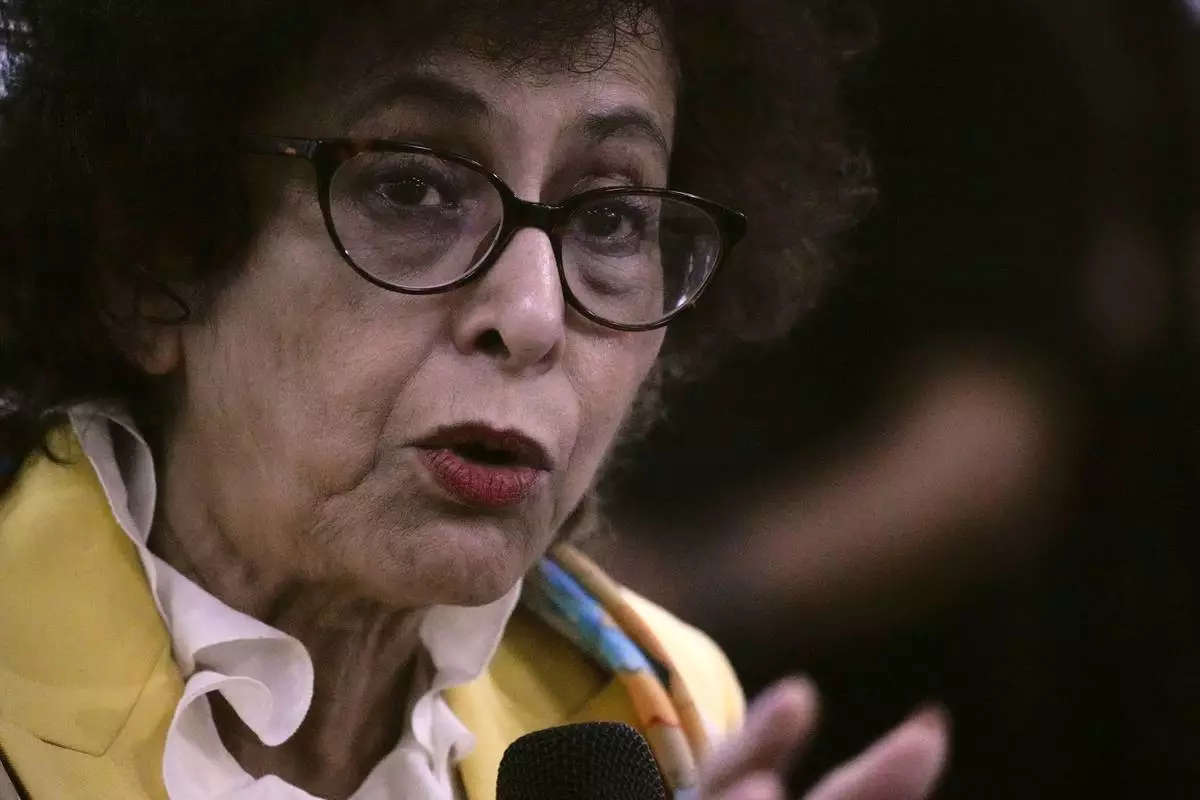
FILE - United Nations Special Rapporteur on Freedom of Opinion and Expression Irene Khan gestures during a press conference in Mandaluyong, Philippines, on Feb. 2, 2024. (AP Photo/Aaron Favila, File)

















